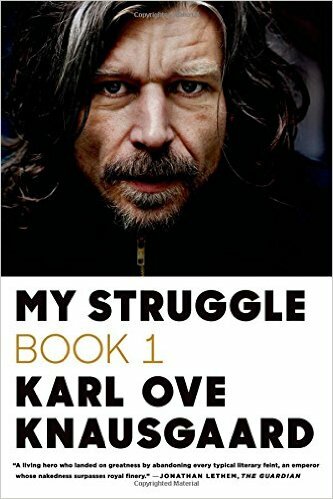 “How important can it be that I suffer and think? My presence in this world will disturb a few tranquil lives and will unsettle the unconscious and pleasant naiveté of others. Although I feel that my tragedy is the greatest in history—greater than the fall of empires—I am nevertheless aware of my total insignificance. I am absolutely persuaded that I am nothing in this universe; yet I feel that mine is the only real existence.” — E. M. Cioran, On the Heights of Despair
“How important can it be that I suffer and think? My presence in this world will disturb a few tranquil lives and will unsettle the unconscious and pleasant naiveté of others. Although I feel that my tragedy is the greatest in history—greater than the fall of empires—I am nevertheless aware of my total insignificance. I am absolutely persuaded that I am nothing in this universe; yet I feel that mine is the only real existence.” — E. M. Cioran, On the Heights of Despair
I was wary about this enormous Knausgaard thing when everyone started talking about it, as I’m always wary when everyone starts talking about something, but then I read this article, which I thought was really beautifully written, and I thought, yes, I need to give the book a try. I’m giving up after about 250 pages, which means I’ve read only 7% or so of Min Kamp‘s total tonnage. I’ve read the reviews about the book’s genius lying in its relentless commitment to evacuating artifice from the recounting of experience; I am called upon to appreciate its indifference to being appreciated. This seems to me a rather monumental example of the imitative fallacy, and I don’t think I’ll need to read 3,600 pages of it in order to understand that, any more than I need to take an hour to admire the brush strokes on a Warhol soup can canvas. Like Kenneth Goldsmith’s Day, the Knaussgard book makes me feel like if I were actually to read it, I’d be some kind of sucker. Goldsmith professed his intention to “cleanse myself of all creativity” through the writing of Day; Knausgaard ends the six-volume My Struggle with a similar sentiment: “I am happy because I am no longer an author.”
Was he ever? If My Struggle is not just a conceptual work to be regarded rather than actually read, if it really is a novel written by an author to be read and experienced as art, then it is awful. I’m reminded of the ways that Boyhood bored and annoyed me. Like Cioran says, every ordinary human’s struggle seems imponderably significant to herself or himself. That’s natural enough. But to assert that struggle is relevant to others is adolescent narcissism, nothing more. I here expose myself to the charge that no life is ordinary, that we all of us contain inexhaustible galaxies of thoughts, sensations, ambitions, impressions, emotions, opinions, disappointments, passions. Fair enough, and a lovely thought. I suppose it follows then that being trapped with any random human in an elevator for a month would be an inexhaustibly fascinating experience. Enjoy that. I’ll take the stairs.
And finally: There is something very male about both this book and its reception. It seems to me undeniable that My Struggle‘s success would have been impossible if it were not drawing on the mythic notion of the heroic male novelist. In other words, if a woman had tried to do something like this, no one would have paid a lick of attention to it, or if they did, they would be much quicker to call it what it is: monumentally narcissistic and dull.